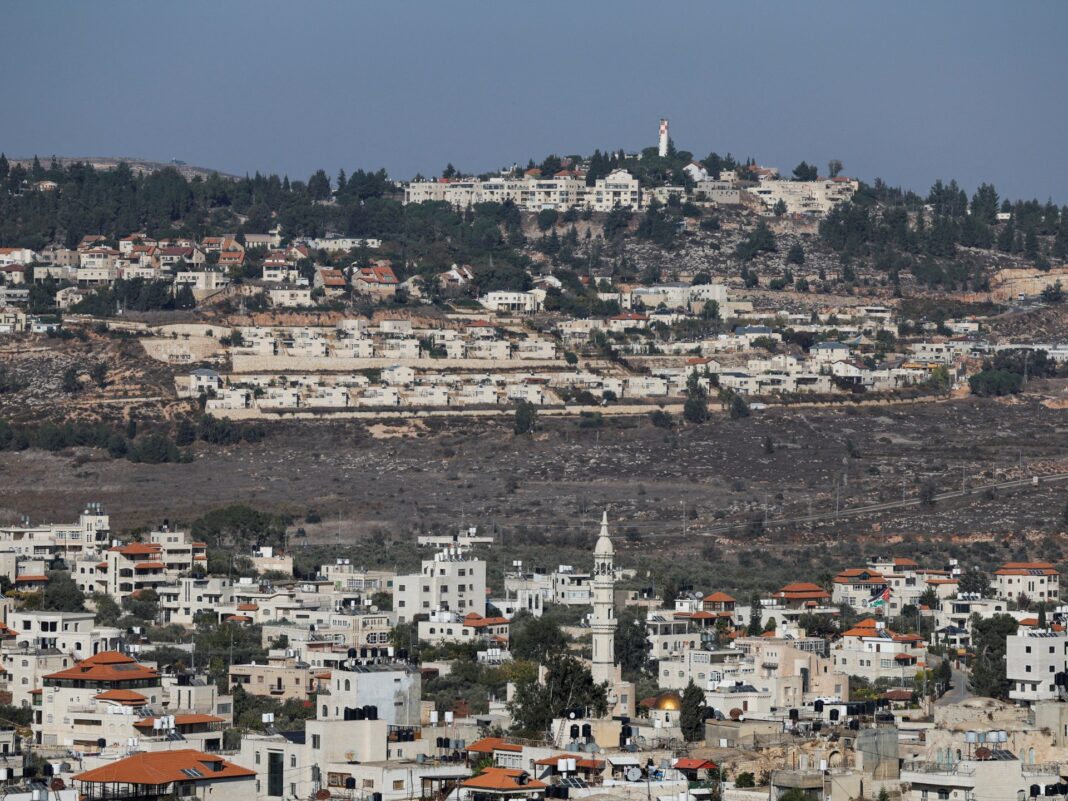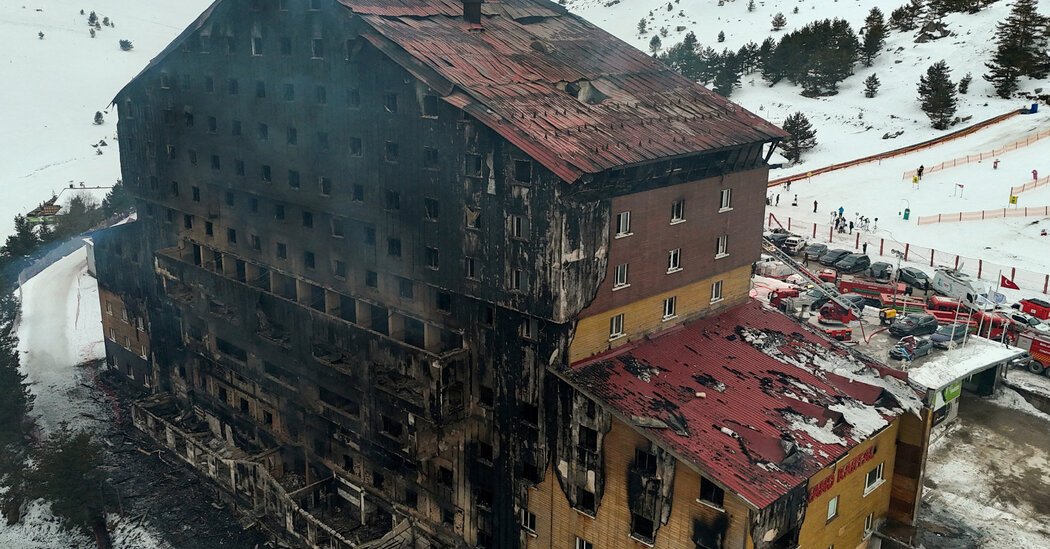Among the host of executive orders signed by United States President Donald Trump following his inauguration on Monday was the lifting of sanctions imposed on more than 30 Israeli settler groups and entities by the administration of former President Joe Biden.
Settler violence has long been a fact of life for Palestinians living within the occupied West Bank. But attacks and the theft of Palestinian land have soared since the beginning of Israel’s war on Gaza.
Trump’s move has been celebrated by Israel’s far-right, although it came soon after the new president pushed for a ceasefire in Gaza, much to that faction’s anger. So what can we learn from the removal of sanctions, and what will Trump’s policy on Israel and Palestine be?
What were the sanctions imposed on the settlers?
Under the terms of the sanctions individuals and entities were blocked from accessing all US property, assets, as well as the US financial system.
Who did the sanctions target?
Illegal Israeli settlements have been built across the West Bank since it was seized by Israel in 1967. The settlements are built on seized Palestinian land, and are part of an effort by the setter movement and the Israeli government to increase control over the West Bank. Palestinians emphasise that the settlements – where they are not allowed to live – effectively make it impossible to establish a Palestinian state.
A number of individuals and entities had been hit by the sanctions. Among them were the settlement development organisation Amana, as well as its subsidiary Binyanei Bar Amana Ltd, both of which were determined by US officials to be among the organisations serving as umbrella bodies for violent and extremist settler activity.
Individuals, such as David Chai Chasdai, with convictions in Israel for violence against Palestinians reaching back more than a decade, were also included, as well as many settlers determined by US officials to have established illegal outposts or settlements on Palestinian land, such as the Svis Farm, established by a settler, Zvi Bar Yosef, described by the anti-occupation researcher Dror Etkes, as having been responsible for the “most brutal assaults I’ve ever heard about in terms of settler attacks”.
However, despite the Biden administration’s uncompromising rhetoric, plans to sanction the ultra-Orthodox Netzah Yehuda battalion following a string of alleged abuses, including the arbitrary killing and torture of Palestinian civilians, were shelved after Israeli Prime Minister Benjamin Netanyahu publicly objected.
Why did the US impose sanctions on its ally’s citizens
The sanctions came as the Biden administration faced pressure to use its power to stop Israel’s war on Gaza, including by suspending arms sales.
Unwilling to do so, the administration instead carried out several lesser measures seeking to influence Israel’s actions and signal its displeasure, such as the sanctions on select settler groups and individuals.
In November, former Department of State spokesperson Matthew Miller said that both Biden and his Secretary of State Antony Blinken had “repeatedly stressed with their Israeli counterparts that Israel must do more to stop violence against civilians in the West Bank and hold accountable those responsible for it”.
The Israeli government has been dominated by far-right pro-settlement figures, including Finance Minister Bezalel Smotrich and Itamar Ben-Gvir, who was National Security Minister until last weekend, when he resigned in protest against the ceasefire agreement between Israel and Hamas.
In November, Ben-Gvir responded to an arrest warrant issued by the International Criminal Court for Netanyahu by suggesting Israel should annex the West Bank. Earlier the same month, in anticipation of a Trump presidency, Smotrich went further, ordering preparations be made for the annexation of the occupied territory this year.
Did the sanctions limit the violence?
No.
Through 2024, the period when the US sanctions were imposed, the United Nations Office for the Coordination of Humanitarian Affairs (OCHA) recorded the highest numbers of attacks in the nearly two decades since OCHA began documenting such incidents, noting “approximately 4,250 Palestinians displaced 1,760 structures destroyed, and about 1,400 incidents involving Israeli settlers across the West Bank, including East Jerusalem”.
Al Jazeera and rights groups, including Amnesty International, have tracked numerous incidents of settler violence against Palestinian homes over the course of Israel’s war on Gaza and consistently found settler attacks to have either been ignored or even abetted by security forces under the command of Ben-Gvir.
What has been the Israeli response to the sanctions lifting?
Both Smotrich and Ben-Gvir celebrated the sanctions revocation by Trump.
Posting on social media Ben-Gvir wrote that he welcomed the “historic decision of incoming US President Donald Trump to lift the sanctions imposed by the Biden administration on the settlers of Judea and Samaria”, he said, using the term for the occupied West Bank used by the Israeli government.
Finance Minister Smotrich was equally explicit, characterising the sanctions as “a severe and blatant foreign intervention in Israel’s internal affairs”
I sincerely thank President Donald Trump for his just decision to lift the sanctions imposed by the Biden administration against settlers and activists in right-wing organizations. These sanctions were a severe and blatant foreign intervention in Israel’s internal affairs and an… pic.twitter.com/Lp1I8oFixa
— בצלאל סמוטריץ’ (@bezalelsm) January 21, 2025
Is this a sign of what Trump’s policy on Israel and Palestine will be?
While many in the pro-Palestinian camp have given Trump credit for pushing for a ceasefire in Gaza, he was overwhelmingly pro-Israel in his first term and is likely to be the same in the next four years.
Trump has been willing to give the Israeli right-wing several wins in the past even when it has gone against long-term US policy. For example, he moved the US embassy to Jerusalem and recognised Israel’s illegal annexation of the Syrian Golan Heights in his first term in office. He also presented an initiative that would have recognised Israeli sovereignty over illegal settlement blocs in the West Bank.
Members of his current circle include Mike Huckabee, Trump’s evangelical and pro-settlement pick for US Ambassador to Israel, as well as “mega-donor” billionaire Miriam Adelson, who is reported to support the Israeli annexation of the West Bank, suggest that Israeli ambitions for the territory may be drawing closer, HA Hellyer, a senior fellow at the Royal United Services Institute, said.
The Trump administration has also nominated Republican congresswoman Elise Stefanik as US Ambassador to the United Nations. Stefanik has spoken of Israel’s “biblical right” to the West Bank, and has characterised the number of times UN votes have gone against Israel as evidence of the organisation’s “anti-Semitic rot”.
“Many of Trump’s picks, such as Pete Hegseth for Defence, or his new National Security adviser, Mike Waltz, would suggest we’re seeing the very limited and restricted restraint on Israel’s behaviour that existed, completely be abandoned,” Hellyer said.


